
Sept 15-Oct 15: Latin American and Hispanic Heritage Month
Latin American & Hispanic Heritage Month (LAHHM) is the official celebration honoring the history, cultural diversity, and unique contributions of individuals and communities whose ancestry can be traced back to Spain, Mexico, Central and South America, and the Caribbean. The observation started in 1968 as Hispanic Heritage Week under President Lyndon Johnson and was expanded by President Ronald Reagan in 1988 to cover a 30-day period starting on September 15 and ending on October 15. It was enacted into law on August 17, 1988, on the approval of Public Law 100-402. September 15th coincides with the Independence Day celebrations of Costa Rica, El Salvador, Guatemala, Honduras, and Nicaragua, followed shortly thereafter by Mexico (Sept. 16) and Chile (Sept. 18). Día de la Raza and Indigenous Peoples Day, recognized on the second Monday of October, also fall within this 30-day period.

October: Asian Pacific Islander Desi American Heritage Month
While Asian Pacific Islander Desi American Heritage Month (APIDAHM) is officially celebrated in the month of May, Vanderbilt celebrates APIDAHM in the fall semester from October to early November. It is the official celebration that honors the history, cultural diversity, and unique contributions of Asian Americans and Pacific Islanders, and Desi Americans (APIDA).
A rather broad term, Asian/Pacific/Desi encompasses all of the Asian continent, India, and the Pacific Islands of Melanesia (New Guinea, New Caledonia, Vanuatu, Fiji and the Solomon Islands), Micronesia (Marianas, Guam, Wake Island, Palau, Marshall Islands, Kiribati, Nauru and the Federated States of Micronesia) and Polynesia (New Zealand, Hawaiian Islands, Rotuma, Midway Islands, Samoa, American Samoa, Tonga, Tuvalu, Cook Islands, French Polynesia and Easter Island).

October: LGBTQI+ History Month
LGBTQI+ History Month was first established in the United States in 1994 by Rodney Wilson, a high school history teacher, to honor and celebrate the contributions of lesbian, gay, bisexual, transgender, queer, intersex, and other identities in the LGBTQI+ community. Observed annually in October, the month was chosen to coincide with National Coming Out Day on October 11 and to commemorate the first and second Marches on Washington for LGBTQI+ Rights in 1979 and 1987. It serves as a time to reflect on the progress made toward equality, recognize key figures in LGBTQI+ history, and raise awareness of the ongoing challenges faced by the community.

November: Native American and Indigenous Heritage Month
The first American Indian Day in a state was declared on the second Saturday in May 1916 by the governor of New York. In 1990 President George H. W. Bush approved a joint resolution designating November 1990 “National American Indian Heritage Month.” Similar proclamations, under variants on the name (including “Native American Heritage Month”) have been issued each year since 1994.
Native American and Indigenous Heritage Month is a time to intentionally celebrate the unique, rich, and diverse cultures, traditions, and histories of Native peoples while acknowledging the important contributions of Native and Indigenous people. NAIHM is also an opportune time to educate the general public about tribes, to raise a general awareness about the unique challenges Native people have faced both historically and in the present, and the ways in which tribal citizens have worked to overcome these challenges.

February: Black History Month
Black History Month originated in 1926 as “Negro History Week,” created by historian Carter G. Woodson and the Association for the Study of Negro Life and History (ASNLH). Woodson chose the second week of February to honor the birthdays of Abraham Lincoln and Frederick Douglass, key figures in Black history. The week-long observance evolved into Black History Month in 1976, during the U.S. Bicentennial, when it was officially recognized by President Gerald Ford. Celebrated every February in the U.S., and later in Canada and the U.K., Black History Month honors the achievements and contributions of African Americans, while also acknowledging the ongoing struggle for racial equality. It serves as a time for reflection, education, and the celebration of Black culture and history.

March: Women's History Month
Women’s History Month was first observed in March to coincide with International Women’s Day on March 8. In 1987, after growing support and advocacy from the National Women’s History Project, Congress expanded the observance to the entire month of March. Women’s History Month is now an annual celebration of women’s achievements, highlighting their roles in shaping history and advancing gender equality, while also raising awareness of the ongoing struggles women face around the world. It is widely celebrated in schools, institutions, and communities throughout the U.S. and beyond.

March: International Student Month
International Student Month (ISM) is the official celebration honoring and appreciating the history, cultural diversity, and unique contributions of international students at Vanderbilt. Throughout the month of March, the Student Center for Social Justice & Identity (SCSJI), the International Students & Scholar Services (ISSS), University Counseling Center (UCC), Asian American and Asian Diaspora Studies, the Multicultural Leadership Council (MLC), International Student Council (ISC), the Association of Latin American Students (ALAS), the Vanderbilt Nepali Student Association (VNSA), and the National Association for the Advancement of Colored People (NAACP) curate intentional programs designed to foster and build community within the international student community, educate the non-international community about the lived experiences of international students, and celebrate the various cultures that make up the international student community at Vanderbilt.

June: Pride Month
Pride Month is celebrated every June to honor the LGBTQI+ community and commemorate the 1969 Stonewall Uprising in New York City, a pivotal event in the fight for LGBTQI+ rights. The Stonewall riots began as a response to police raids targeting LGBTQI+ individuals and sparked a nationwide movement for equality and liberation. The first official Pride marches took place in June 1970, marking the anniversary of the Stonewall protests. Over the years, June became recognized as Pride Month, a time to celebrate LGBTQI+ identities, raise awareness about issues affecting the community, and advocate for equal rights. Today, Pride Month is marked by parades, events, and activism worldwide, reflecting both the progress made and the challenges that remain in the fight for LGBTQI+ justice and inclusion.
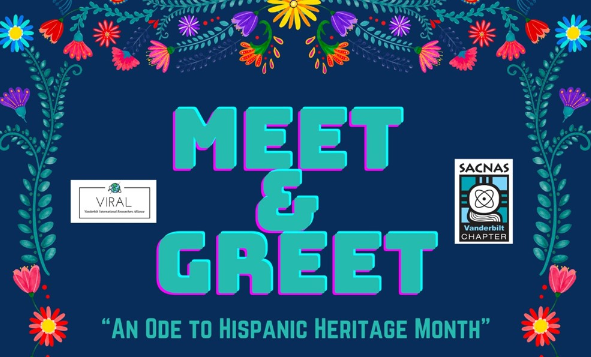 Fall 2024 Meet and Greet
Fall 2024 Meet and Greet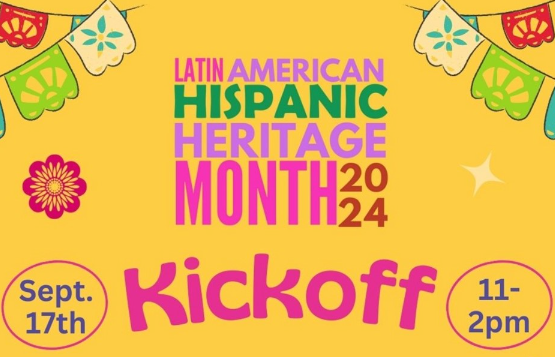
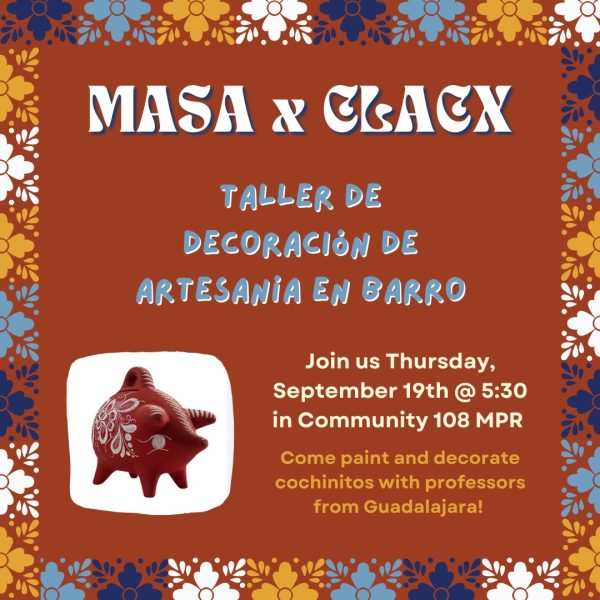 Taller de Decoración de Artesanía en Barro
Taller de Decoración de Artesanía en Barro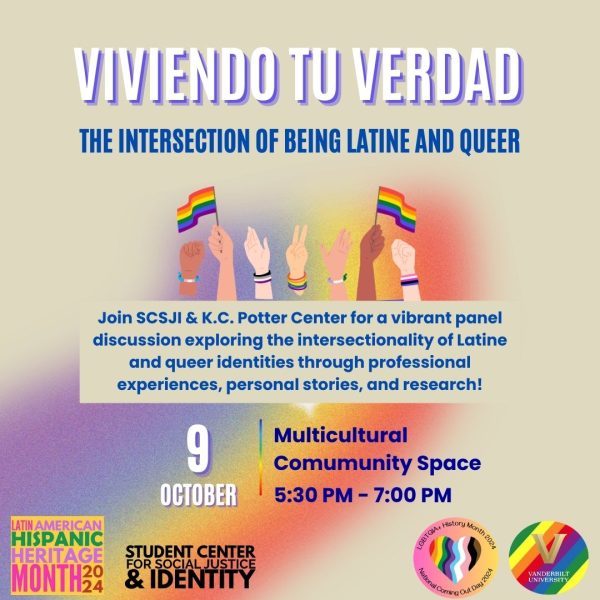 Viviendo Tu Verdad: The Intersection of being Latine and Queer
Viviendo Tu Verdad: The Intersection of being Latine and Queer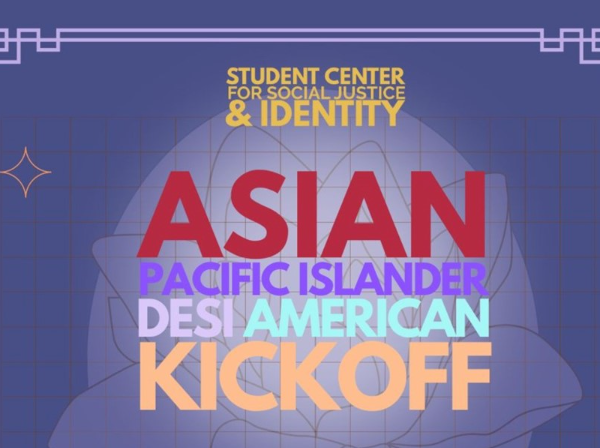 Asian Pacific Islander Desi American Heritage Month (APIDAHM)
Asian Pacific Islander Desi American Heritage Month (APIDAHM) Cultural Immersion with Celebrate Nashville
Cultural Immersion with Celebrate Nashville Vintage Queer Night
Vintage Queer Night Out&Out
Out&Out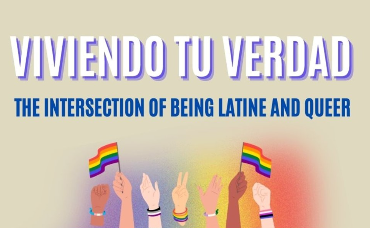 Viviendo Tu Verdad: The Intersection of being Latine & Queer
Viviendo Tu Verdad: The Intersection of being Latine & Queer It’s a Femininomenon: Queer Women and Femmes Alumni Career Panel
It’s a Femininomenon: Queer Women and Femmes Alumni Career Panel